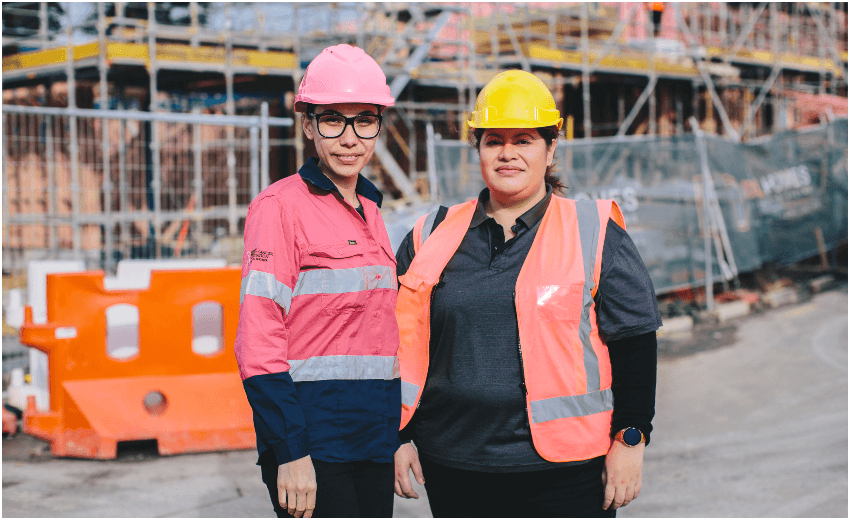Auckland Council has relaunched its supplier diversity intermediary service with a new name and national focus. Community and social innovation manager Tania Pouwhare explains how this service could play a crucial role in New Zealand’s economic recovery.
One of the rallying slogans of Covid has been that famous whakataukī “he waka eke noa” – the canoe that we are all in without exception. But while some are in luxury yachts, others are in crafts of varying seaworthiness and many are clinging on to debris for dear life. For Māori and Pacific peoples, we’ve always known that we’re not all in this together; every single economic shock this country has experienced has taught us that much.
Since the 1970s, each time there’s an economic downturn the impacts on south and west Auckland, and Māori and Pasifika in particular, are predictable; far higher than average job losses followed by a long, arduous trek back to square one. We still haven’t recovered from the global financial crisis some 12 years ago. In Tāmaki Makaurau, the Māori median income is less in real terms than in 2006, whilst the city’s median income in general kept rising even throughout the GFC. During the “rock star economy” period of 2013 to 2018, we appeared to have missed the boat altogether, with the income gap widening between Māori and Auckland medians.
I work for the innovation team The Southern and Western Initiative at Auckland Council. Our job is to positively disrupt the socio-economic inequity that has blighted south and west Auckland and to demonstrate that a just economy is possible. We are a small team and don’t have macro-economic levers, so we used the levers we did have – influencing the council’s purchasing power through requiring employment and other socio-economic objectives in tenders and contracts.
We had some successes with Auckland Transport in creating quality jobs and paid work experience for young people. But we needed to democratise the means of production so that everyday people have a stake – a real stake – in the economy. Māori and Pasifika business ownership is woefully low, at just 1% of Māori, and even less for Pasifika peoples nationally, yet it’s an important pathway to mana motuhake, having agency over your life.
We were always convinced that Māori and Pasifika businesses were the under-utilised and undervalued change agents in our communities and that was proven when TROW Group, a Pasifika civil construction company, won a council contract to deconstruct and salvage reusable materials from an old council building. Now, they lead the country in deconstruction services and have diverted a thousand tons (that’s 38 adult humpback whales) of perfectly good materials away from landfill to community projects that need them, employing scores of people in the process. This was the breakthrough into the mainstream of council’s procurement spend that we needed.
All of these enterprises were doing good for the ’hood and showing that there’s a different way of successfully doing business that’s laden with Polynesian values. And that’s what we set out to create – a movement for change, real change, not just replication of the same dead-eyed capitalism but with a brown face. What’s more, the council family was diversifying its base of contractors so it looked more like the citizens and communities we serve.
Procurement is a tricky business, with technical, strategic and tactical knowledge required. It is also a door that can only be opened from the inside. Hence we created an intermediary that gets the people with the money and the power to open the door for Māori and Pasifika businesses. We provide hands-on help to buyers to design and implement first-rate procurement strategies so that the door is not only open, but the doormat says haere mai. We then match our businesses to the tender process and work with them to understand the written and unwritten rules to be successful.
This week we are relaunching from our original name, ironically He Waka Eke Noa, to Amotai, aptly meaning “sea swell” in te reo Māori. It is a reference to our Polynesian ancestors’ skills in navigating new territory, and the courage, innovation, risk taking and fortitude needed to settle Te Moana Nui-a-Kiwa.
This is the origin story of Amotai, our flagship economic initiative that was born in the south and raised in the west of Auckland.
In the last 12 months alone, Amotai has facilitated $45 million worth of contracts to Māori and Pasifika businesses, more than half of which was during the first lockdown, undoubtedly saving many Māori and Pasifika jobs, and creating more. Our colleagues across the public sector, such as the Link Alliance, Kāinga Ora, Auckland Transport and council’s Waste Solutions and Community Facilities teams, have got behind this transformational cause. We were chuffed to see Auckland Council as the first public body to set a target (for social enterprises and Māori and Pasifika owned businesses) and we hope that central government will follow. We have 400 Māori and Pasifika-owned businesses registered with us and the movement is growing daily.
It’s not been easy and it’s still fragile. But I’m really proud that one of the most effective economic initiatives for everyday whānau and ‘aiga came out of the areas that are usually branded with unjustified and negative narratives of social and economic deficit and failing. And it’s been done with street smarts, pure determination and the smell of an oily rag, as all good movements tend to do.
Supplier diversity isn’t a silver bullet; such a thing doesn’t exist. We can’t save every Māori or Pasifika business from the tempest of Covid-19, but we will use Amotai to carry many more waka to safe harbours.





